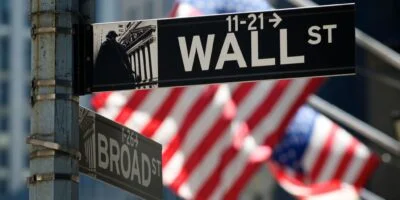The FTC’s Amazonian Snipe Hunt

When lockdowns were the order of the American day, we worried. The media highlighted only the worst predictions, and we did not know what would happen next. Whether transitioning from high school to college or returning from spring break, we both had serious concerns about what the future held. But one thing concerned neither of us: receiving online purchases in a timely manner. The reason: Amazon.
During those trying times, Amazon scaled up its operations and rose to the challenge, ensuring that consumers could get the products they could no longer find in, or felt unsafe purchasing from, brick-and-mortar stores. In the midst of COVID-19’s first year, Amazon increased its workforce by over a third, hiring 175,000 new warehouse workers and bringing its total employee count to 876,000. Amazon’s earnings soared, but more importantly, the company provided many of us with a semblance of normalcy when it was in very short supply.
Despite the public’s largely positive perception of Amazon after its adept response, last month, the FTC filed suit against Amazon, asserting that Amazon has “exploited its monopoly power to enrich itself while raising prices and degrading service for tens of millions of American families who shop on its platform and the hundreds of thousands of businesses that rely on Amazon to reach them.”
Excellent analyses of the specifics of this lawsuit have already been offered by AIER here and here. We, however, find additional value in noting how the benefit of Amazon’s service during the COVID-19 moment was not only undiminished by its size and scope, but dependent upon it.
Few companies delivered so quickly and efficiently, both in workforce expansion and product distribution, in meeting the challenges of COVID-19 and the corresponding lockdowns. The FTC’s anti-big ideology threatens this company’s future capacity to continue offering Americans ideal service, with minimum prices, even during periods of great unrest.
The FTC argues that Amazon’s market power inhibits the ability of competitors to enter the retail superstore marketplace. Such concerns are likely overblown. The striking similarities between Amazon and previous market giants deserve consideration. Let’s compare Amazon with Sears. Both companies started by selling one product; for Amazon, it was books, and for Sears, it was watches. Both sold directly to consumers, Sears by mail-order and Amazon in the digital marketplace. Like today’s perception of Amazon, Sears became a goliath in the marketplace. While only beginning brick-and-mortar operations in 1925, Sears quickly grew to 300 department stores by 1929. By 1969, Sears’s retail sales accounted for one percent of the entire US economy. By 1975, along with JC Penney and Montgomery Ward, Sears had 43 percent of all department store sales.
Where is this goliath today? In 2005, Sears merged with Kmart, as both companies sought their best, and potentially only, hope to ward off their rapidly expanding rival. Amazon? No, Walmart, which “by 1991 topped Sears as the biggest US retailer by sales.” Yes, that same Walmart, that the FTC no longer recognizes as a viable competitor to Amazon in the digital marketplace. Even with 4,000 stores in 2012, Sears could not compete with Walmart’s superior business model and declared bankruptcy in 2018.
How fundamentally does Amazon differ from Sears? What stops Amazon from going by the wayside if it stops meeting customers’ needs? Even if a monopoly advantage does exist, can Amazon retain it if other digital e-commerce companies grow at a faster rate? Amazon must constantly compete with Walmart, for example, which is currently estimated to see its sales in e-commerce grow at a faster rate than Amazon’s in 2023. Internationally, it must compete with Alibaba and Flipkart. To successfully compete, Amazon must satisfy consumer demand. In a poll among registered voters, 91 percent of its customers say they are very satisfied (63 percent) or somewhat satisfied (28 percent) with its service. If consumers become dissatisfied with Amazon, they will migrate to a competitor that better serves their needs, sending a more significant signal to Amazon than the current contorted FTC lawsuit. Perhaps consumers should decide whether a company acts effectively in their interest; they know their interests better than the FTC does.
Without the FTC’s release of its full report, the harms to consumer welfare remain evasive. Has Amazon genuinely harmed the consumer, thus deserving to have its rights to conduct business restrained? Or has it just gotten big enough to serve society well, even when the economy faces unprecedented harm from other sources? Ayn Rand once observed that:
Under the Antitrust laws, a man becomes a criminal from the moment he goes into business, no matter what he does. For instance, if he charges prices which some bureaucrats judge as too high, he can be prosecuted for monopoly or for a successful ‘intent to monopolize;’” ‘ if he charges prices lower than those of his competitors, he can be prosecuted for ‘unfair competition’ or ‘restraint of trade;’ and if he charges the same prices as his competitors, he can be prosecuted for ‘collusion’ or ‘conspiracy.’ There is only one difference in the legal treatment accorded to a criminal or to a businessman: the criminal’s rights are protected much more securely and objectively than the businessman’s.
Businesses that successfully satisfy consumers, as Amazon generally does, should not have to constantly look over their shoulders in fear of violating antitrust laws. Three times as many voters prefer the government regulate Amazon less rather than more, suggesting they realize that overzealous regulations harm their own welfare.
The public should worry that this suit may foretell a return to the Brandeisian pre-consumer welfare standard, which was not only volatile, but detrimental to the public. Size does not preclude vulnerability. When Amazon stops providing consumers with valuable services, another company that does will replace it. Hostility to “big” in the marketplace died in the 70s. We should let it rest in peace.












